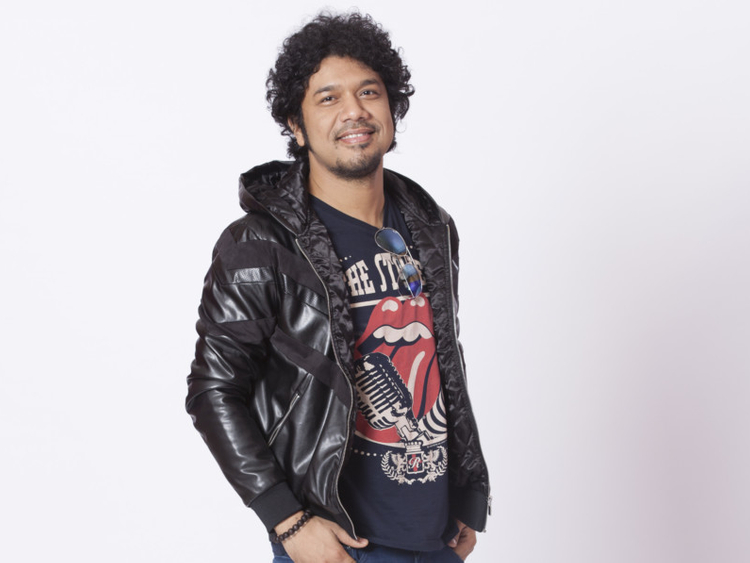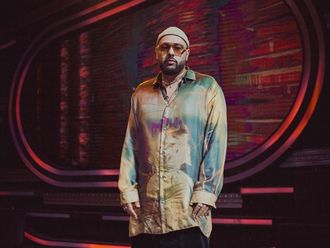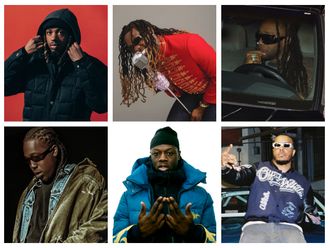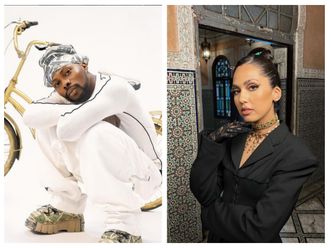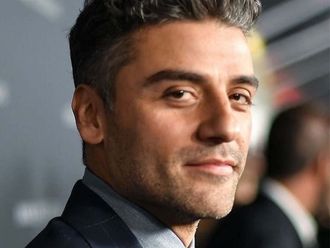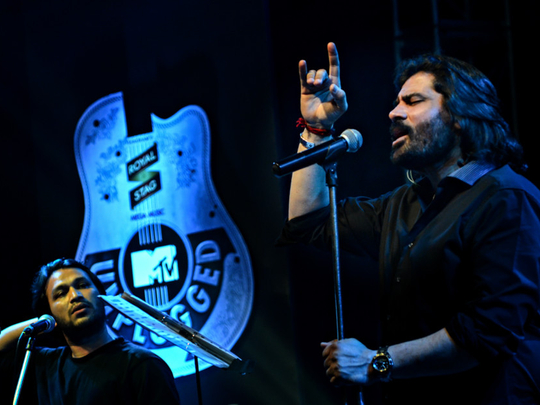
This weekend Dubai will celebrate Eid Al Fitr with some popular names in Bollywood music from both sides of the border.
While Pakistani singer Shafquat Amanat Ali will lead the line-up including Papon and Komal Rizvi on July 8, Kailash Kher and Arif Lohar will take the stage on Saturday at the Dubai World Trade Centre for the MTV India Undivided music festival.
While Ali, 51, is a regular performer in the city, Papon who won acclaim with Moh moh ke dhaage from last year’s surprise hit Dum Laga Ke Haisha, will make his second live appearance in the UAE. Yet, both Ali and Papon feel Dubai is a great stage to perform as it is the place where everyone comes together.
“It’s always very exciting to come to Dubai because you get to see all the nationalities together. We are coming with a new energy and will be performing some new songs we haven’t performed anywhere yet, including songs from my album Muh Dikhai [released last year],” Ali, who came to limelight with the song Mitwa from Kabhi Alvida Naa Kehna singer told tabloid!.
“I’ve only done three or four concerts like this, so I’m really looking forward to it. Also the line-up is amazing so that’s another reason. It is a very good mix [of Indian and Pakistani artists] and I feel like this is how concerts should be,” the 40-year-old Assamese singer Papon said.
tabloid! spoke to the singers about making music and working in the Indian film industry prior to the event.
SHAFQUAT AMANAT ALI
Shafquat Amanat Ali is a Pakistani classical singer belonging to the Patiala Gharana lineage. He was the lead singer for rock band Fuzon before coming into Bollywood with the Shankar-Ehsaan-Loy composed Mitwa. His private hit songs Mora Saiyaan and Tere Bina were featured in Nagesh Kukunoor’s film Hyderabad Blues 2. On television he’s been part of MTV Unplugged and Coke Studio, and has been a judge on the Pakistani-Indian singing reality show Asia’s Singing Superstar.
You were speaking of how all nationalities come together for concerts in Dubai. Do you think music is the genre that connects fans from both sides of the India-Pakistan border more than any other art form? Music definitely is the strongest bond that has kept us together for so long, no matter what issues come up. It has been the one connection that has endured but bringing all the talent from both the countries on one stage gives a new angle to this bond.
Your songs span almost all styles of Indian music — from Bollywood to Sufi to folk to pop rock. What do you enjoy singing the most?
It’s a very interesting question and I have a very interesting answer. What I really miss is vocal bass. When it comes to songs, Bollywood definitely has an edge because if one of your film songs becomes popular, it gets a vast audience. On the other hand, private music does not reach beyond a certain number of people — it only spreads through word of mouth. So, I think publicity-wise and to have a bigger hit, Bollywood is very important. Otherwise, as a singer I like vocal bass.
You’ve also said you are extremely “choosy” when it comes to Bollywood songs. What do you think makes a good song and a good singer?
For a good song, it depends on what kind of music the singer likes and what kind of popularity he or she is seeking. If you are really concerned that you want to sing something that will after a year you can look back upon and say “Ya, that’s me!”, then you need to be careful that the song’s lyrics and composition should be up to the mark and it shouldn’t be a rip off of an older number. Then you can proudly associate with that song. But if it is instant fame you are looking for then you don’t really care what lyrics or composition you are singing.
[For me] to be a perfect singer you firstly need to be be honest with your work, without depending on the auto-tuner all the time. Nowadays a lot of people are using a software called Melodyne, which is an auto-tuner. I was curious as to why it was invented and I found out that a human voice is not always pitch perfect. The music or track [the singer needs to sing along to] is created with all these electronically tuned instruments, which are always pitch perfect at 440 [Hz]. A human voice, however, cannot always be pitch perfect. An auto-tuner puts the human voice right into that track. But a lot of people are using/abusing it to tune voices that are not really melodious. So as a singer you need to be honest.
Then learning the basics of music is one of the most important responsibilities for a true singer and the need to be always up to the mark.
Apart from singing for films, you’ve been a regular participant on TV shows such as MTV Unplugged and Coke Studio, which have a wide viewership than a live performance. As a performer which would you prefer?
Honestly, every TV performance is connected to your live performances because at the end of the day people want to hear live what you have performed on screen. So that way both are complementary because if you don’t perform TV, you won’t get live shows. And if you don’t do live shows, then there’s no point performing on a popular TV show.
After singing several popular songs, such as Mitwa, Tere naina (My Name Is Khan), Phir le aaya dil (Barfi!) and Ye honsla (Dor), do we see you composing for Bollywood films?
Well, there are negotiations.
You’ve been referred to as Rockstar Ustad. How did you come up with that title?
Well I didn’t call myself that. Salim [of Salim-Suleiman] gave me this title. Before our first meeting — for the song Ye honsla — he had an image of me. He had thought because I belonged to a classical gharana [school of music] I would be this guy in a kurta-pyjama [traditional Indian tunic and loose pants] or another eastern dress. But when we met, unlike his image, I was wearing my normal attire of jeans and t-shirt and I had a ponytail. That’s when he referred to me as Rockstar Ustad. And it stuck.
PAPON
Papon, aka Angarag Mahanta, won five awards for Moh Moh Ke Dhage. Trained in Indian classical and folk music, he has sung in Hindi, Punjabi, Tamil, Marathi and Assamese. He can also play four instruments: the tabla, guitar, harmonium and the khol, a double-headed clay drum.
He is also a songwriter and is one of the few artists who have been featured on all four seasons of Coke Studio, a show featuring fusion music.
Papon performed in Dubai in 2014 at the MTV Unplugged concert.
Why do people call you Papon?
It’s my pet name. People at home used to call me that. I don’t have a preference of what I like to be called. Only five per cent of the people call me Angarag. Since I moved out [of Assam] a long time ago people started calling me Papon.
Are you looking forward to performing in Dubai again?
Yes, for sure. On Twitter and Facebook I always have people asking me when I’m coming to Dubai. I’ve been travelling all over the world but somehow Dubai has not happened until now. Then I was approached for the MTV Undivided concert and I thought ‘why not?’
Since you play four instruments, can we hope for some instrumental renditions too?
Well, that’s an interesting question. My band and I may mix things up this time. We’ll do a little of Coke Studio music and the singing I’ve done for MTV Unplugged. We will sing Bollywood songs but a little folk and contemporary as well. That is what Coke Studio is actually about and that’s what India, Pakistan and the Middle East is about.
Was it difficult for you to get into the Bollywood, being a north-eastern Indian?
It was not very difficult but [it was] definitely not easy. Somehow people work [within] their comfort levels and when they suddenly come from a different place — an unknown place — it sometimes takes a while for people to understand that [they] could be mainstream also. So maybe that’s the difficulty.
Out of the Hindi songs that you’ve sung, which is your favourite?
That is something I’ve never been able to answer, because it keeps changing and it can’t be one song. I don’t believe that [a singer] can have a favourite. It’s like having children, you can’t say this is the best and that one is not. If [I had favourite] then I would have been stuck to one song.
How would you describe the music scene in India?
Well, today it’s a mixture of genres and really high standards of production. At the same time it is madness because of deadlines. Sometimes we miss out on the soul side of it because of catering to a formula that is safe and hip.
How do you pick your songs? Is there anyone in the industry you want to work with?
I obviously look up to everyone. I don’t know how to answer this, but for me it is the song. I also compose and produce [many of] my own songs. A great song comes around and you think, ‘I need to sing this song’.
I have almost worked with everyone [in the industry] and I still want to work with them again. If you’re talking about outside then I’d like to work with Norah Jones.
If you had to give advice to a new singer what would you say?
Well, firstly, you need to be patient, and just keep doing your work… and I guess, love your work. Focus on that. If you get into something you like, such as Bollywood, it’s nice. If you don’t, it does not mean that music ends. You should focus on the music and it will show you the path. If you’re good enough and [if you are fortunate] then you will succeed. If it doesn’t then that should not demotivate you. The journey should be musical, where you reach is irrelevant. If you follow your heart and do what you wish then [you’ll reach where you want to be].
When will your album release?
Well, it will first be an EP, hopefully releasing in September. It will be a very interesting mix, that’s all I can say right now. It took me five years to make this album so it has got lots of different genres and different styles. It’s almost like different singles put together in an album.
— Shreya Bhatia is an intern with tabloid!
Don’t miss it!
Shafquat Amanat Ali, Papon and Komal Rizvi will perform at MTV Undivided Eid music festival at the Dubai World Trade Centre on Friday, July 8, at 9pm. Tickets start Dh100, platinumlist.net



